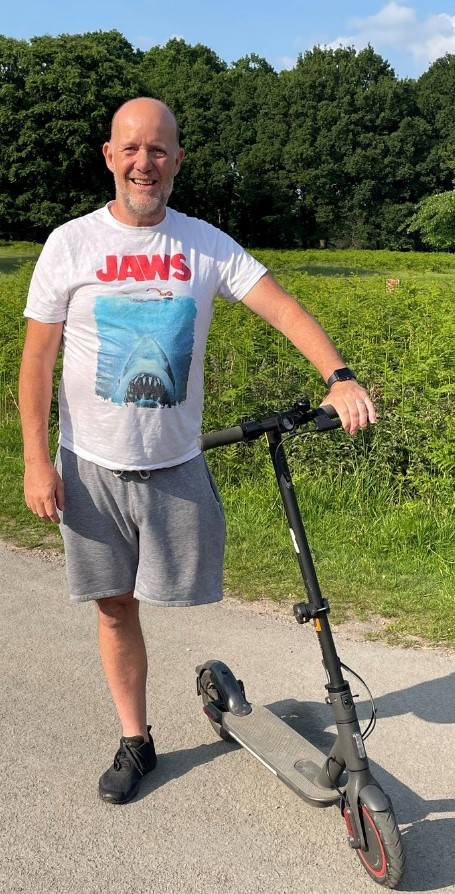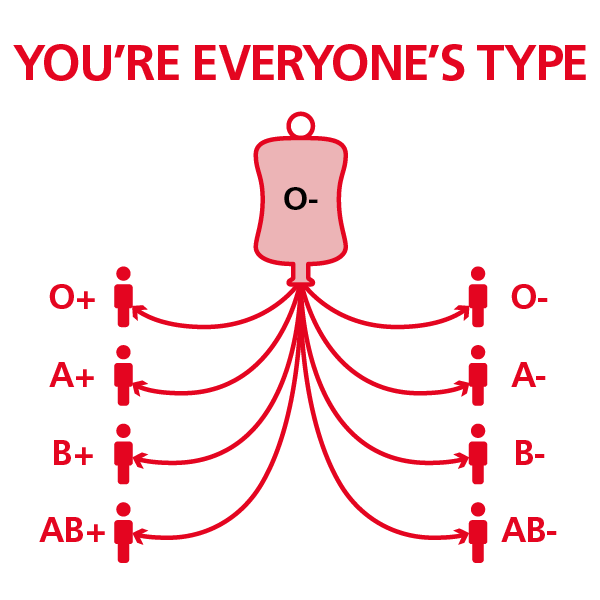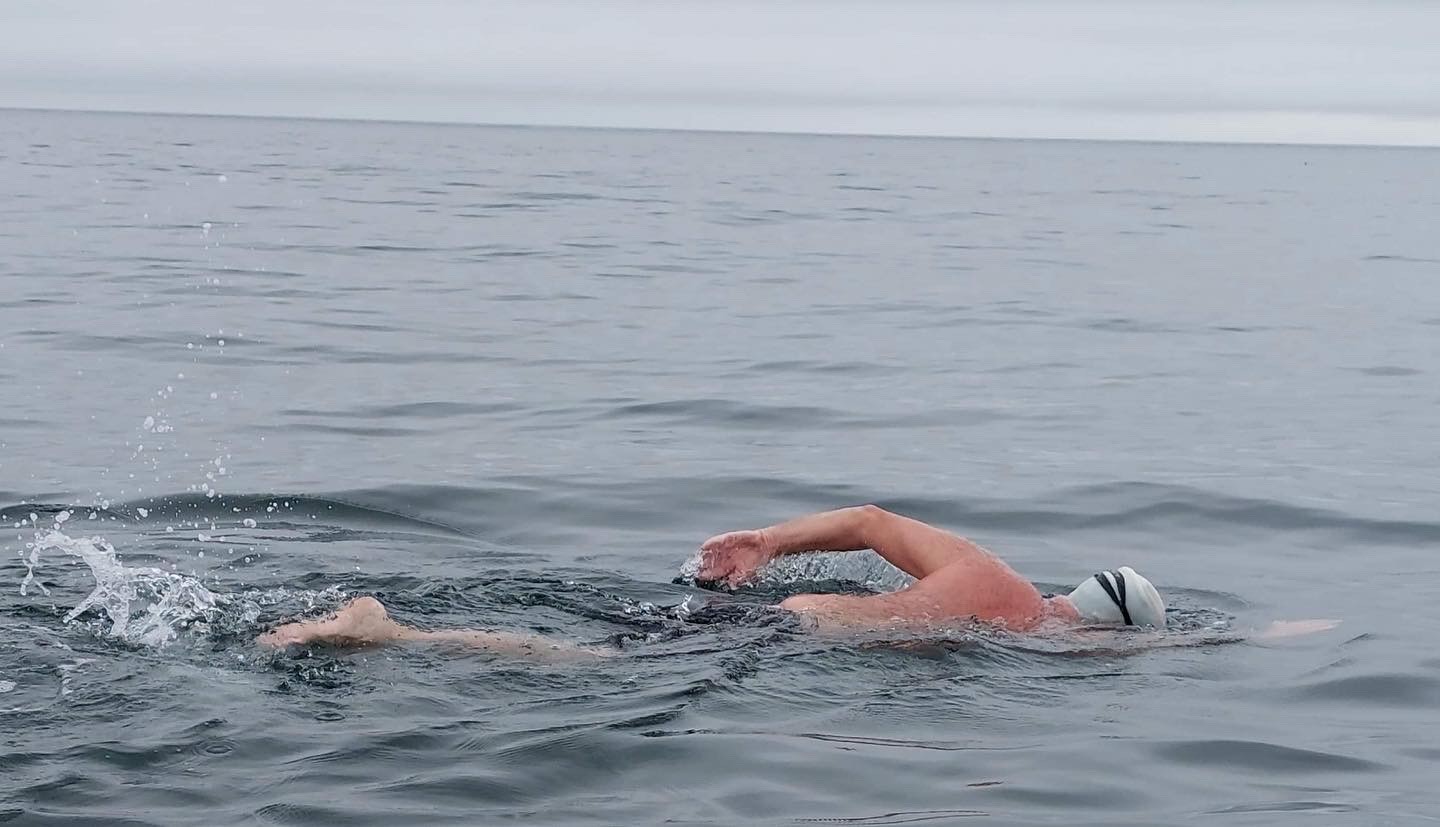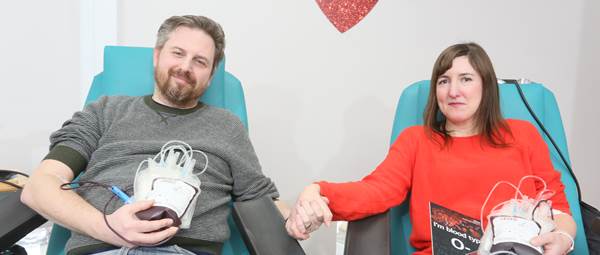80 units of blood and a 21-mile swim - O neg
Following a motorcycle accident, Andrew Smith’s life was saved after receiving blood. Last year, alongside other amputees, Andrew took on one of the most challenging sea swims in the world…
On 19 July 2000 my life was saved about 10 times over after receiving approximately 80 units of blood when I was involved in a collision with an articulated lorry. I had been travelling to work on my motorbike and cannot remember the impact or what happened leading up to it, but my bike slid underneath the lorry and my leg got crushed.
 I was very lucky to survive, I came round in the road where paramedics were working on me. They got me in the ambulance where I was rushed to Addenbrookes hospital. I arrested twice in the ambulance and once in A&E too. A medical team worked on me for 10 hours in theatre, the impact caused serious damage to my leg and the femoral artery was split with blood loss being extremely severe. Medics worked hard to recover my leg and a nurse was even squeezing bags of blood into me, but my leg could not be saved, and it was decided to amputate it above the knee.
I was very lucky to survive, I came round in the road where paramedics were working on me. They got me in the ambulance where I was rushed to Addenbrookes hospital. I arrested twice in the ambulance and once in A&E too. A medical team worked on me for 10 hours in theatre, the impact caused serious damage to my leg and the femoral artery was split with blood loss being extremely severe. Medics worked hard to recover my leg and a nurse was even squeezing bags of blood into me, but my leg could not be saved, and it was decided to amputate it above the knee.
All throughout surgery I was in an induced coma where I remained for two weeks. Amazingly I was able to go home five weeks after the accident and three months later I was walking with a prosthetic leg.
(Image: Andrew received approximately 80 units of blood after the accident)
The accident and years following have been tough as every aspect of my life changed. Learning to walk with a prosthetic takes its toll. I also had to fold my business and retrain. I am still unable to work like I could before the accident, but I do lots of volunteering and rediscovered a love of swimming.
In 2022, I was one of the first people with a disability to swim the North channel. I teamed up with four other amputees who have all also been recipients of blood products. We call ourselves the 'Bits missing swim team!’
The North Channel swim is one of the most challenging sea swims in the world owing to the low temperatures, jellyfish, changeable weather and demanding swimming conditions. It covers approximately 21.5 miles from Northern Ireland to the coast of Scotland.
I remain forever grateful to blood donors as do the rest of the team
It took us 15 hours 8 minutes and 32 seconds. The water temperature was 11 degrees! It was very hard swimming in those conditions for such a long time. We swam for an hour rotation.
For a short time after my accident, I was allowed to give blood and had even worked out how long it would take to payback the amount of blood I received but in 2004 the rules changed and I was no longer allowed to donate. I was disappointed but remain forever grateful to blood donors as do the rest of the team.
Thank you to blood donors for giving me this opportunity.
Only about 8% of the population has O negative blood but the demand for it from hospitals is increasing. O negative accounts for around 13% of hospital requests for red blood cells.
O negative blood is often called the ‘universal blood type’ because everyone can receive O negative red blood cells. This is why it is important in emergencies and when a patient’s blood type is unknown.
Air ambulances and emergency response vehicles carry O negative supplies for emergencies. As an O negative donor you are the lifeblood of the emergency services. You are a First Responder. 


